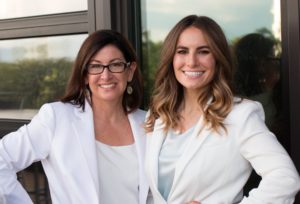Today I just finished reading a college essay written by one of my students about coping with learning differences in an international school that refuses to acknowledge or accept learning disabilities in its students. In her poignant essay, this B/C student writes about how hard she worked to keep up with the other students, and feared being “discovered” and expelled based on her learning needs. The blow to this hard-working young woman’s self-esteem was so forceful that she almost did not want to apply to college at all. Knowing that she has written brilliant essays by herself, learned the meaning of hard work and perseverance, and finally hit the “submit” button on the applications almost moves me to tears. We’ve come a long way in our work together.
This story will have a happy ending. I’m happy to say that almost all of my students (touch wood) have had a similar happy ending to their story. But many of them have zigged and zagged along the way, and their struggles started early in childhood. This morning I read a touching blog at Smart Kids with LD by Jonathan Mooney called “Second Grade Terrors” in which he describes feeling sick with fear when asked to read aloud as a second-grader. For this dyslexic child, it felt like a public humiliation. To avoid the situation he would get up, ask to go to the bathroom, cry, and feel like he was choking. He writes that sometimes he even thought about suicide.
Jonathan Moody’s story had a happy ending, too. As an honors graduate from Brown University, he and his friend, David Cole, co-authored a book called Learning Outside the Lines: Two Ivy League Students with Learning Disabilities and ADHD Give You the Tools for Academic Success and Educational Revolution.
Today Jonathan Moody is a motivational speaker and has founded a non-profit organization to advocate on behalf of individuals with learning disabilities. This story and book are not only practical, but inspirational.

To those schools who say, “We don’t take students with learning disabilities because we are college prep,” I have this to say. In the United States, any college or university that receives federal money has support for students with learning disabilities and international schools aren’t far behind. Even at an Ivy League school like Brown. Students with learning disabilities can and should go to college if that is their dream and they are motivated to achieve it.
Jonathan is now spending his life drawing attention to and advocating for these kids. I understand that there are multitudes of children in the United States whose learning needs are not being addressed. I see this with my students coming from international schools, too. This problem is global. As imperfect as the special education system in the United States is at times, at least it is a federal mandate. Students in international schools, even American international schools, may or may not find learning support. Far too often I see the unwanted consequences of having an unmet learning need in this internationally mobile school population.
When unidentified or unmet learning needs are coupled with frequent moves and adjustments, often these students become at risk for lower self-esteem, lack of self-confidence, and feelings of inadequacy. Many of them can’t see that they, too, can go on to university. They feel different, or that they are failures.
In even more serious scenarios, I see some of these students engage in risky behaviors, or develop a mental health issue that sets them off course. Jonathan Moody describes how he felt as a second grader – imagine how those feelings would be magnified in an adolescent. He mentions in this blog that at times he thought about suicide. I can tell you that I work with pre-teens and teens who not only think about it, but act on it.
Help and support for these students is available. I have written about this before, so will not go into these options here.
These are serious issues that can have far reaching consequences on the life and future of a young person. But once identified and addressed, as demonstrated by Jonathan Moody and my student who submitted the essay today, the future can be bright and without limits.













